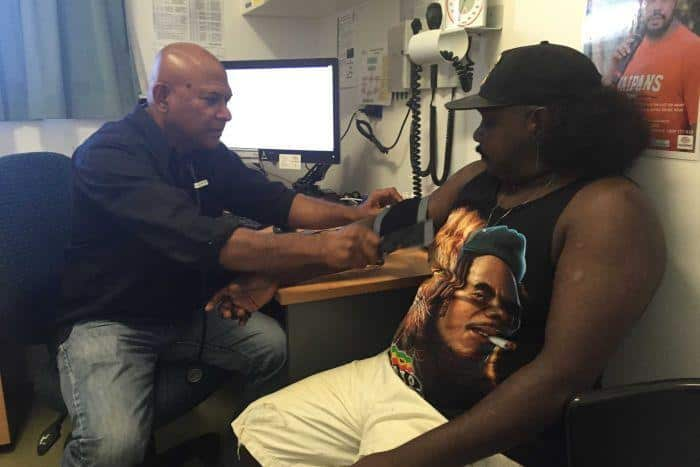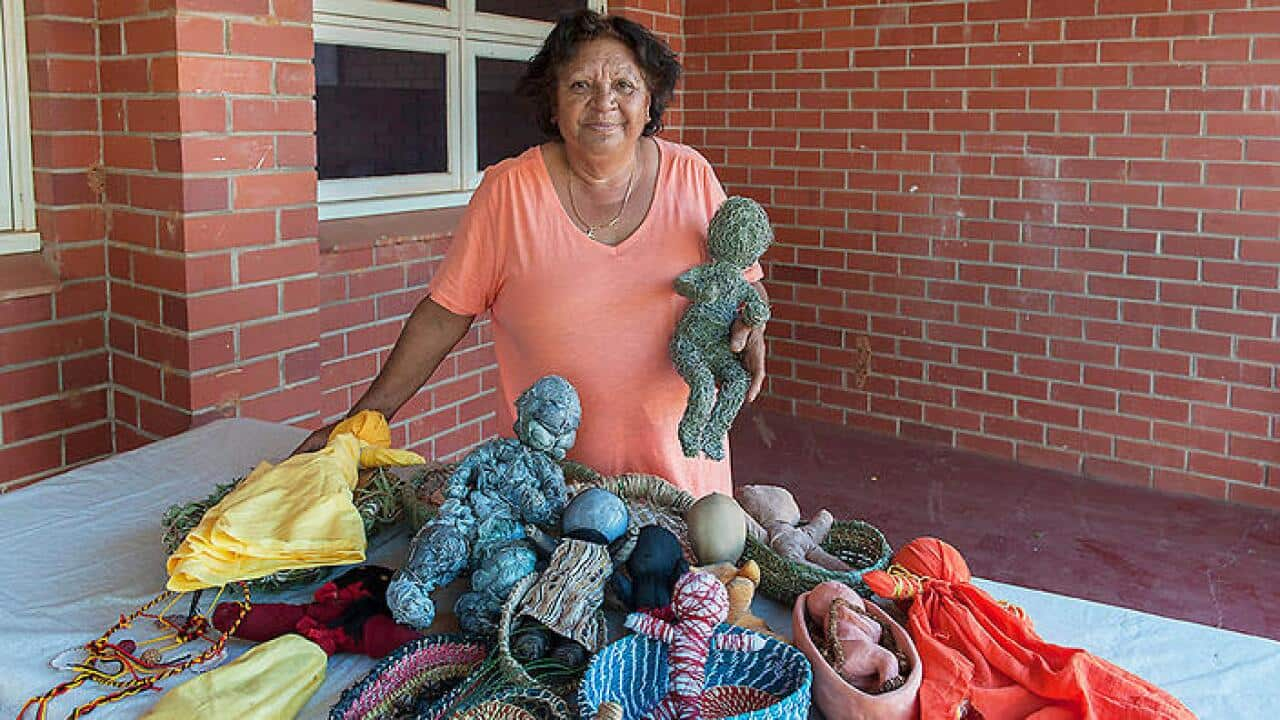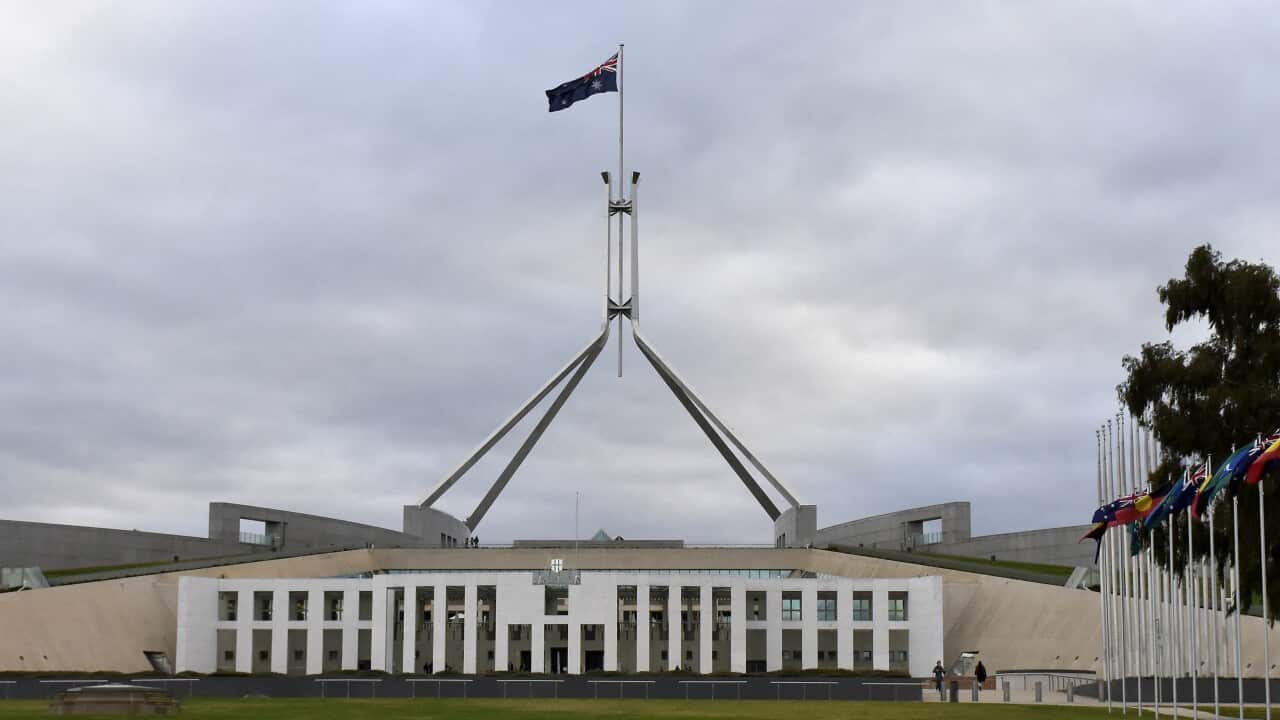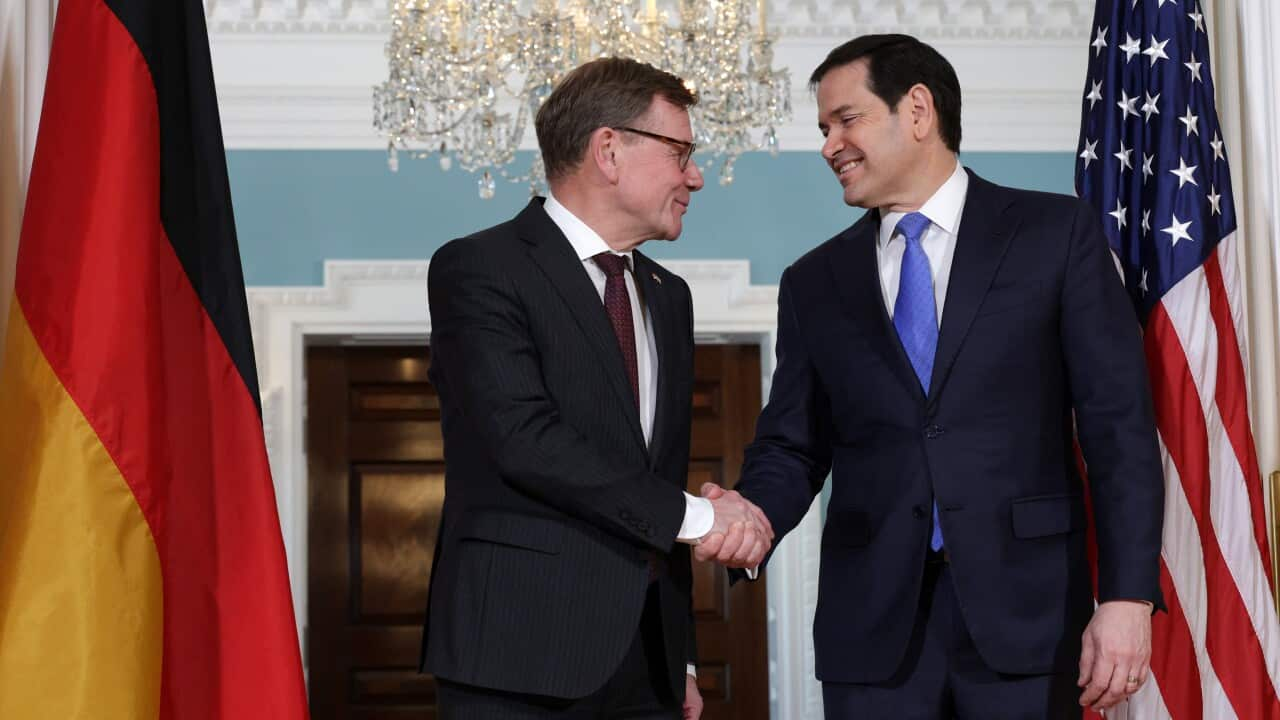Das Haus, in dem Kelvin Kong aufwuchs war immer zum bersten voll mit Menschen.
Der Grund dafür war seine Mutter Grace. Sie war Krankenschwester und die Leute kamen, um sich impfen oder ihre Wunden versorgen zu lassen, aber auch sonst wegen allerlei Wehwechen.
Eine seiner prägensten Kindheitserinnerungen ist die, wie er und seine Zwillingsschwester sich nebeneinander aufgestellt haben und seine Mutter entschied, wer für diesen Tag die Rolle des kleinen Assistenten übernehmen durfte.
"Families would come around and our cousins and their cousins and lots of kids around and always my sister and I would try and fight over who's gonna help mum first."
Erst viel später begriff er, dass diese Kindheitserinnerung eigentlich nur wiederspiegelte, welches Verhältnis die Indigenen Australiens zur Medizin haben.
"The thing that really disheartened me was when you got a bit older and understand the process, you would actually talk to friends in high school or later years and think, 'Why don't you just go up to the hospital like everyone else? Why don't you go to your local doctor?' I think that's when you start asking the questions about, 'Why does that happen with our family but not our non-Indigenous friends?'"
Dr. Kong kommt aus einer gebildeten Familie.
Sein Vater war chinesischer Arzt und seine Mutter die erste indigene Krankenschwester in Australien.
Seine Schwestern waren die ersten Studentinnen mit indigenem Hintergrund, die das Medizinstudium an der Universität in Sydney abschlossen. Das hat ihn dazu inspiriert, ebenfalls eine medizinische Karriere zu beginnen. Er studierte an der Uni von New South Wales und wurde zu einem der ersten Chirurgen mit indigenem Hintergrund Australiens.
Bereits alleine die Kong-Familie macht 1,15% von den insgesamt 260 Ärzten mit indigenem Hintergrund in ganz Australien aus.
Doch trotz des Erfolgs der Familie, mussten sie hart dafür arbeiten und hatten es nicht leicht.
Dr. Kongs Grossmutter half den Kindern der "Stolen Generation".
Als sie hörte, dass Familien voneinader getrennt und aufgeteilt werden war sie entschlossen, ihre zusammen zuhalten. Mit ihrem Mann hat sie insgesamt 12 Kinder großgezogen.
Erst nach ungefähr 40 Jahren waren sie und ihre komplette Familie wiedervereint.
"As a consequence of fear, as a consequence of not having any knowledge of where all of her family went and as a consequence of the policies, she just stayed away from that. So I don't think it was very pleasant in that environment. I think what I'd take from that is not so much the disparity of this fear of what she endured but rather the notion that she had of love, of bond, of bringing her family up and proving that in three generations, from her daughter, my mother Grace, to my sisters, she's got a nurse and doctors out of it."
In der Zeit als Dr. Kong zur Schule ging, war Rassismus weit verbreitet und eine Erinnerung aus dieser Zeit kann er bis heute nicht abschütteln: Ihm wurde geraten doch lieber ein Handwerk zu erlernen.
"At that time it was hard and I actually reflect on that now and think, if I wasn't told that, maybe I would've went into trade but the fact that someone told me that I couldn't do something, that really challenged the enthusiasm to actually prove this wrong."
Der Hals-, Nasen,- Ohrenspezialist sagt, dass die Gesellschaft über die Indigenen in Schubladen denkt. Dass sie diesen "kulturellen Status" haben und sich nicht der heutigen Gesellschaft anpassen.
"When we look at some of the mass media, particularly in recent years, we talk about alcoholism, substance abuse, welfare dependence, and children being neglected. When in actual fact, all of my friends or none of my Aboriginal friends had been in any of these categories, and in fact they're contributing to the Australian society in an extremely meaningful and a very proud way. I think that's the reality rather than the perception."
Doktor Kong fügt hinzu, dass die Verbindung zu seiner indigenen Kultur, die Alternative Medizin seiner Grossmutter und ihre Fähigkeiten der Traumdeutung sich nicht mit der modernen Medizin überschneiden, im Gegenteil, er findet sie ergänzen seine Vorgehensweise in der modernen Medizin.
"In huge ways I think the spirituality of traditional or ngankari medicine is quite important. A lot of the ngankaris talk about mental health and psychological healing. I think that's still an important part of any kind of health regime."
Der stolze Worimi ist ein lebende Beweis dafuer, wie sehr sich die australische Gesellschaft im Laufe der Zeit geaendert hat.
SBS erzählte er von dem Erlebnis, als er das erste Mal eine indigene Stammesälteste untersuchen sollte.
"She was in tears. She was just really overjoyed with being looked after by an Aboriginal doctor. Now, she didn't know me. She didn't know my family at all but it was purely the notion that we can achieve and we can do things that she didn't think she'd live till the day to have that. Now, to me that was so humbling to be in that experience with her, to share that, because you can imagine what she felt when she was growing up for her to come to tears just like seeing a doctor."
Ein weiterer bekannter Vertreter bezüglich der medizinischen Versorgung von Indigenen ist Dr. Mark Wenitong, ebenfalls ein HNO Spezialist. Er sagt, dass seine indigenen Wurzeln seine medizinische Karriere sogar vorangetrieben haben.
"I think in a number of ways that's been helpful to me. One is particularly just in the approach to health in general. So rather than just kind of being biomedical and thinking about things from a clinical perspective, it's thinking about things from a socio-cultural perspective as well, and then thinking about where health fits into peoples lives in the context of Aboriginal people and Aboriginal communities."

Dr. Mark Wenitong (supplied) Source: Supplied
"If I'm talking to one of the guys in prison about getting off the grog, I'll just say, 'You know you'll have to get off the grog mate. You know your liver's stuffed.' Instead of going through all of the liver function tests which nobody really understands anyway."
Als Kabi Kabi, ist Dr. Wenitongs Erbe im Umgang mit indigenen Patienten ein Vorteil. Die Gemeinsamkeiten der Kulturen fördern die Beziehung zwischen Arzt und Patient.
"Particularly in things like men's business, women's business, you know how to approach those. If you don't have a good idea of how to approach some of the more sensitive issues, you probably limit the access of patients to your service and to yourself. So understanding some of the ways to approach people means that they'll open up a bit more and you can talk about more sensitive issues more easily."
Dr. Wenitong sagt, dass die Indigenen sowie auch die Torres Strait Islander Heiler oftmals im Westen gebräuchliche medizinische Praktiken anwenden.
"I have no problems at all in working with traditional healers and often do and the Indigenous Doctors' Association itself has worked closely with a few of the ngangkaris from central Australia and always have, and we definitely see the value of traditional medicine, which you know is 60,000 years worth of experience versus my 6 years."
Die größte Herausforderung für Dr. Wenitong sind die medizinischen Härtefaelle und sein Arbeitspensum.
Doch auch er sagt, dass die Kombination aus dem Wissen der Indigenen und der westlichen Medizin es ihm ermöglichen, Antworten zu finden die beide Ansätze verbinden.
Er setzt sich außerdem dafür ein, dass Indigene ein Mitspracherecht bei ihrer Versorgung erhalten sollten:
"And because we kind of generally look at things from a much more holistic framework, we do want to be involved in lots and lots of things and that becomes pretty complicated. The secondary thing is the amounts of trauma in our communities and probably that's one of the things I'm struggling with the most."
Dr. Wenitong hat erst spät zum Arztberuf gefunden, doch er sagt: es ist nie zu spät, seinen Träumen zu folgen.
"Start as soon as you can. Don't wait for you're 32 like I did. The main thing is if that's your dream, do it, and think about the strategies you'll use to get there. But don't worry if it takes a long time, cos it's worth it."
siehe auch:

Indigene Kunst mit heilender Wirkung
READ MORE

Die heilende Wirkung des Gärtnerns




